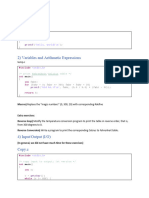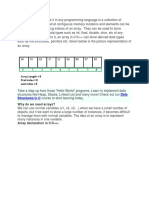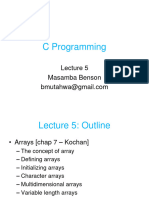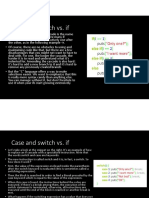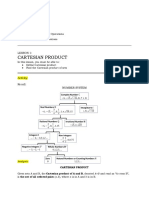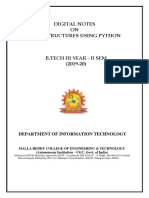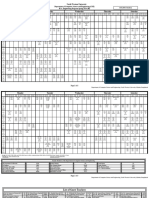0% found this document useful (0 votes)
13 views60 pages06 Arrays
The lecture covers advanced topics in memory management and arrays, focusing on improving the efficiency of prime number calculations using C programming. It discusses the importance of arrays, memory access, and potential pitfalls like segmentation faults when accessing out-of-bounds memory. The session also introduces the sieve of Eratosthenes for finding prime numbers and emphasizes the concept of memory-bound functions.
Uploaded by
carlotta.hoelzleCopyright
© © All Rights Reserved
We take content rights seriously. If you suspect this is your content, claim it here.
Available Formats
Download as PDF, TXT or read online on Scribd
0% found this document useful (0 votes)
13 views60 pages06 Arrays
The lecture covers advanced topics in memory management and arrays, focusing on improving the efficiency of prime number calculations using C programming. It discusses the importance of arrays, memory access, and potential pitfalls like segmentation faults when accessing out-of-bounds memory. The session also introduces the sieve of Eratosthenes for finding prime numbers and emphasizes the concept of memory-bound functions.
Uploaded by
carlotta.hoelzleCopyright
© © All Rights Reserved
We take content rights seriously. If you suspect this is your content, claim it here.
Available Formats
Download as PDF, TXT or read online on Scribd
/ 60







